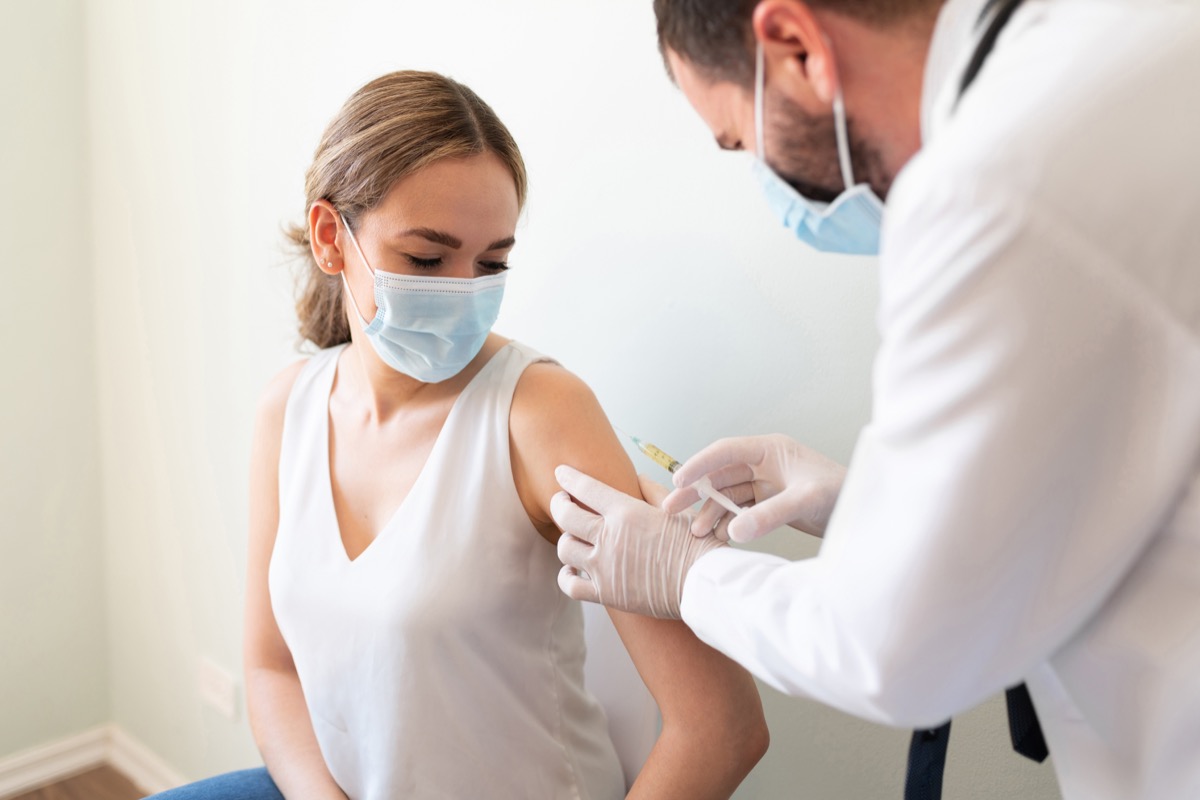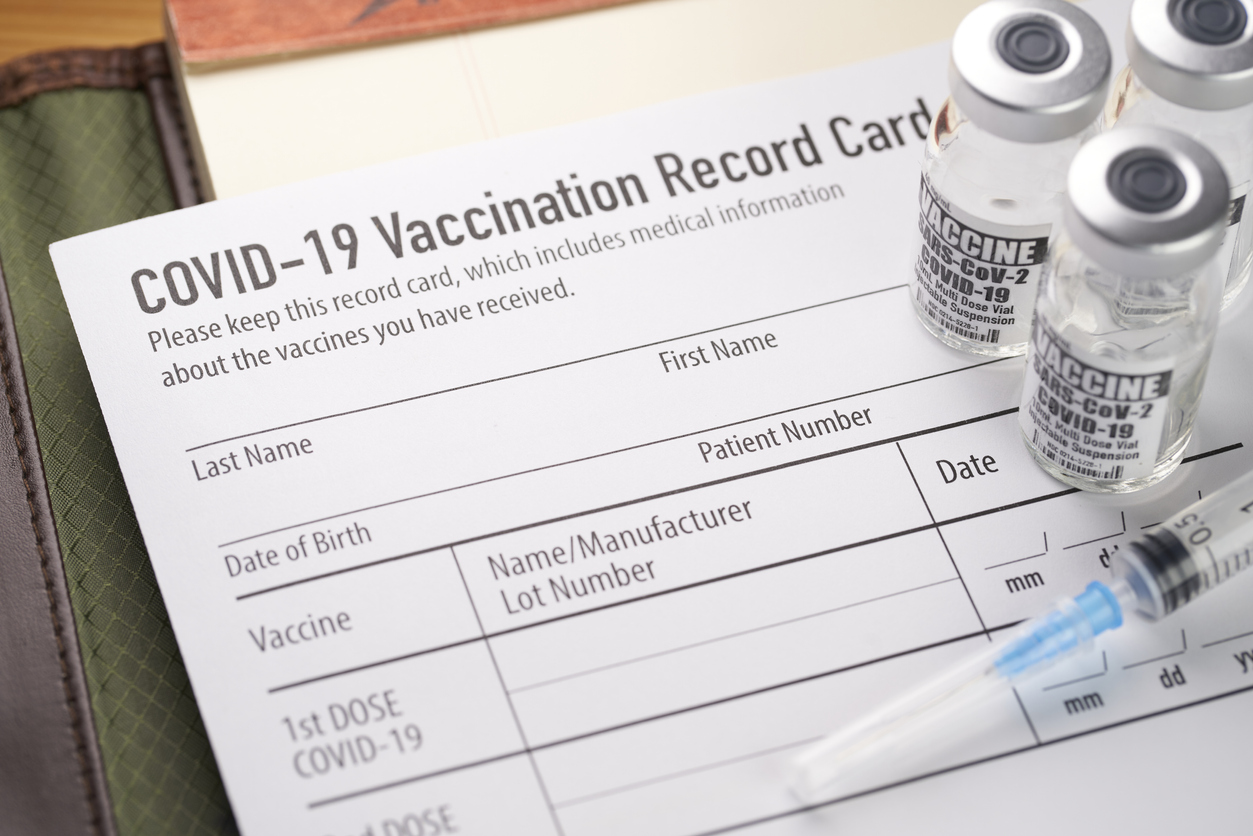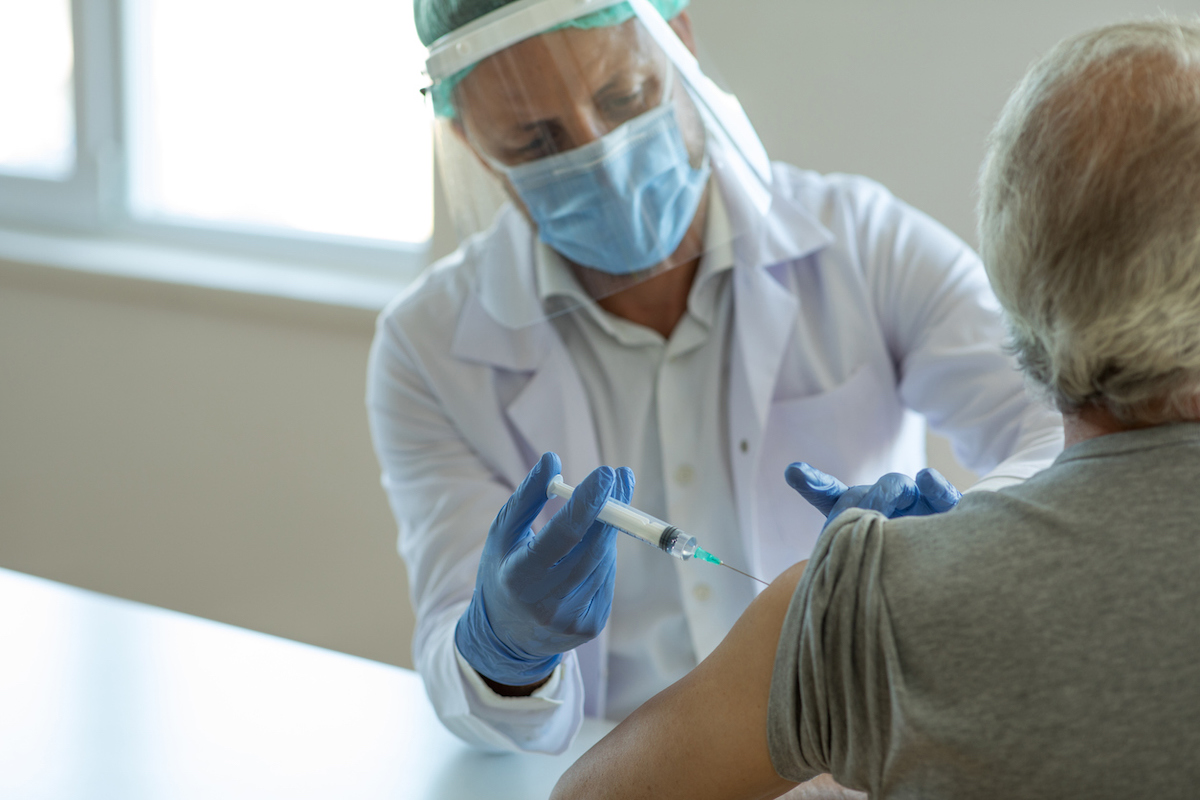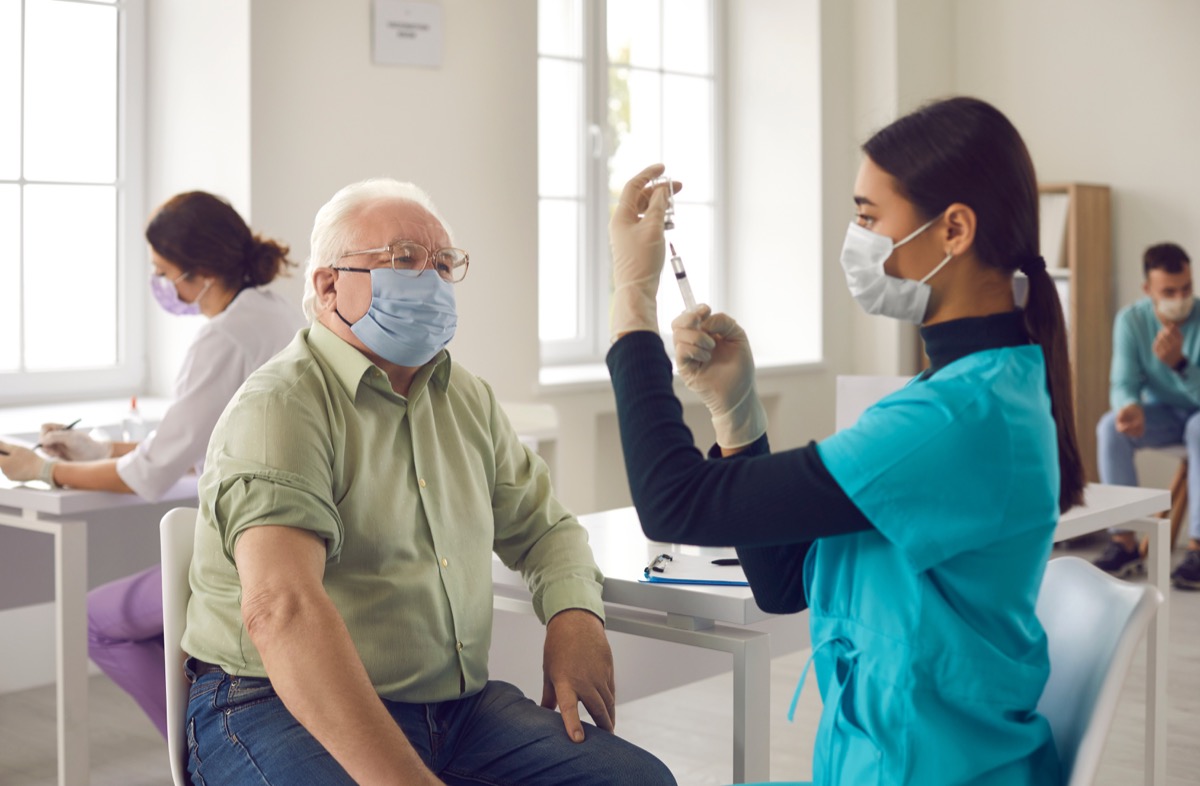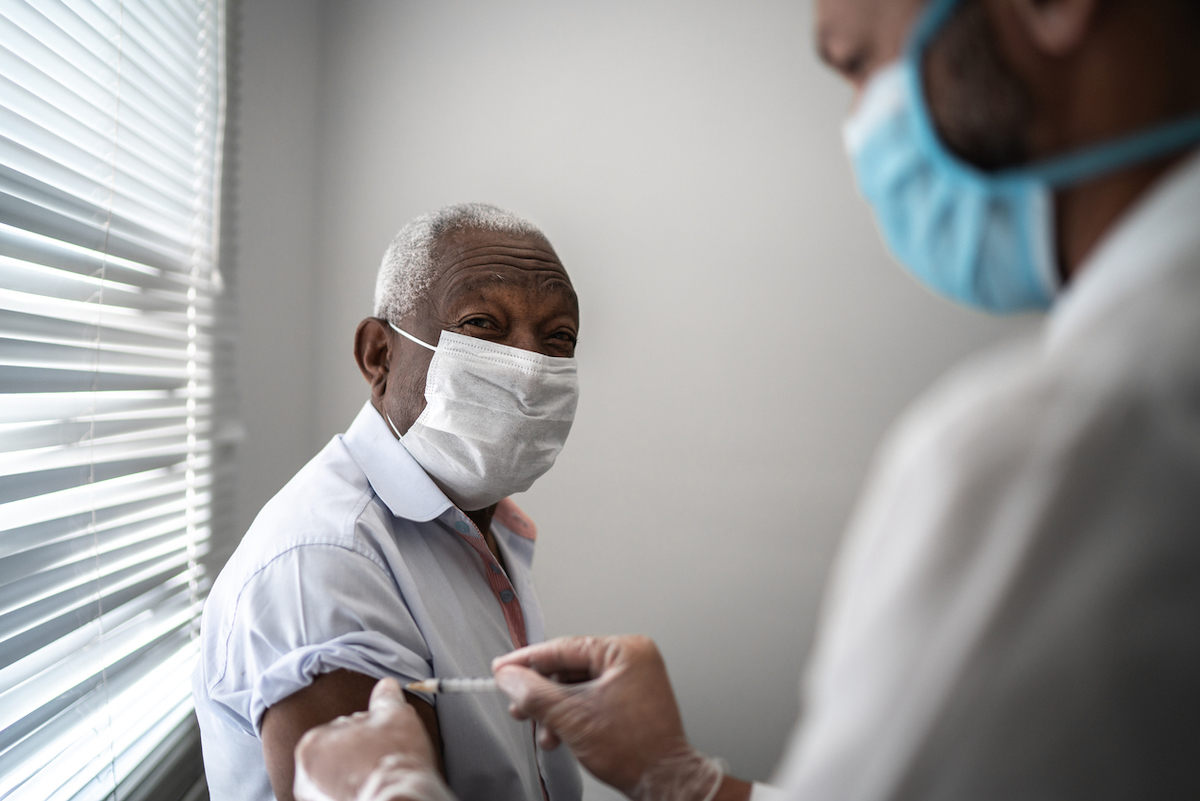According to the WHO’s interim guidance, the effectiveness of the AstraZeneca vaccine actually increases when more time is taken between the two shots required. As such, the agency advises that “in light of the observation that two-dose efficacy and immunogenicity increase with a longer interdose interval, WHO recommends an interval of 8 to 12 weeks between the doses.” And for more vaccine guidance stateside, find out why Dr. Fauci Says Don’t Do This After Your First COVID Shot.ae0fcc31ae342fd3a1346ebb1f342fcb The WHO also clarified that while the timeline between the two required shots was somewhat flexible, it was still advised that patients receive both. The guidance states: “If the second dose is inadvertently administered less than 4 weeks after the first, the dose does not need to be repeated. If administration of the second dose is inadvertently delayed beyond 12 weeks, it should be given at the earliest possible opportunity. It is recommended that all vaccinated individuals receive two doses.” And for more on what you should watch out for between doses, check out If You Have These Vaccine Side Effects, Don’t Get Another Shot, CDC Says. The WHO’s guidance comes days after South African officials paused the use of the AstraZeneca-Oxford vaccine in their country because it wasn’t preventing illness due to their dominant strain, which has mutated the virus, according to The New York Times. Still, the Strategic Advisory Group of Experts on Immunisation (SAGE) panel advising the WHO said that despite concerns that it might not be as effective against the highly contagious South African variant of the virus, “there is no reason not to recommend its use,” Reuters reports. And for more COVID news sent right to your inbox, sign up for our daily newsletter. Recently, German officials released a statement warning that they do not recommend the AstraZeneca vaccine for people over the age of 65, CNN reported. The advisory cited a study done by the Standing Committee on Vaccination at Germany’s Robert Koch Institute that found there was insufficient data on the efficacy of the vaccine for this specific age group as the result of not using enough seniors during clinical trials. As such, Germany’s health ministry has advised that the vaccine should only be offered to people between the ages of 18 and 65. In the WHO’s new guidance, the agency recognizes that there was a “relatively small number of participants aged 65 years or over … recruited into the clinical trials.” However, the WHO says that “immune responses induced by the vaccine in older persons are well documented and similar to those in other age groups. … Taking the totality of available evidence into account, WHO recommends the vaccine for use in persons aged 65 years and older.” The WHO’s interim recommendations point out that research shows AstraZeneca’s vaccine has an efficacy rate of 63.09 percent against symptomatic COVID, which is considerably lower than the 95 percent afforded by both Pfizer’s and Moderna’s vaccines. Strangely, previous studies had found that a higher efficacy rate of 90 percent was reported in patients who received a half dose of the vaccine followed a month later by a full dose, The New York Times reports. And for more on vaccine requirements, check out You May Soon Need a COVID Vaccine to Do This One Thing, Officials Say.
